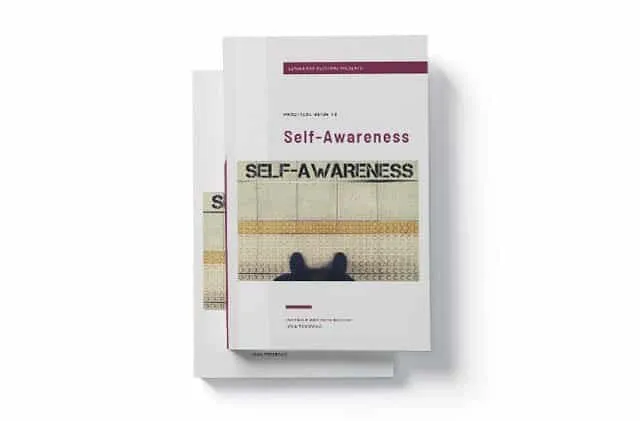To be a great leader, you must be a great listener.
According to Richard Branson, this is crucial because “nobody learned anything by hearing themselves speak.”
Since active listening is a core communication skill, it’s also essential for effective leadership. Active listening can make a tremendous difference in your relationships with friends, family members, coworkers, anyone really.
In this article, I’m going to break down exactly what it means to actively listen and how you can practice this skill in the workplace, at home, with friends – pretty much everywhere!
Origins of active listening
Carl Rogers and Richard Farson defined the term “active listening” in 1957 in a paper of the same title.
Rogers and Farson wrote: “Active listening is an important way to bring about changes in people. Despite the popular notion that listening is a passive approach, clinical and research evidence clearly shows that sensitive listening is a most effective agent for individual personality change and group development.”
Listening brings about changes in people’s attitudes toward themselves and others; it also brings about changes in their basic values and personal philosophy. People who have been listened to in this new and special way become more emotionally mature, more open to their experiences, less defensive, more democratic, and less authoritarian.
Challenges of active listening
To become a better listener, you need to understand what is involved in effective communication and develop the techniques that will help keep your own needs aside while focusing on those of another person. This can be difficult because of the way humans think.
Our brains are naturally drawn towards distractions with any new information or idea presented to us.
When you’re talking to someone, your brain immediately pays attention to the words coming from their mouth, tone of their voice, and manner of speaking. This is where it gets tricky because instead of hearing one voice, you end up hearing two. The first one coming from the other person, and the second one in your own head. If we don’t pay attention, we will listen to the voice coming from within, rather than the other person.
Sitting down for a conversation is not always easy. We should strive not just to hear what people are saying but also pay close attention and stay aware of anything important while having an active discussion. This means staying aware which direction our focus wanders off, which can be difficult when distractions come into play!
Different types of listening
You’ve heard me mention hearing, listening, and active listening several times. What is the real difference between them?
Let’s break down these the three types and understand how active listening can make you a more effective leader.
Hearing
We also know this type as “not listening.” Yes, we all habitually do this. It’s one of the worst habits because you are not actually listening to what your people have to say.
You might be looking at the person and pretending to listen, or maybe nodding your head in agreement from time-to-time – but internally you are thinking about what’s going on with yourself. Another example would be half listening while someone talks because you’re busy checking your phone.
I’m guilty of this. I used to check my phone every few minutes during conversations, thinking there might be an important message I’ll miss. The truth was, I was missing the most important message right in front of me.
This shows that your thoughts and preoccupations matter more than anything else to you, which will make your people feel unheard or insignificant in some way.
Listening
Listening is an improvement from hearing. When you are not thinking about other things, such as looking at your phone or checking social media while someone speaks to you. You may have heard what they said, but you were never fully connected.
I enjoy hearing new ideas. The challenge is that as soon as I hear it, I start processing it and lose attention to the other person.
This will make people feel heard but never truly understood because there was no full engagement with their emotions behind those words.
Active listening
Active listening is key to being a more effective leader in this digital era. Leaders need empathy, awareness of other’s emotions and thoughts on topics discussed with them.
You are paying attention not only to what someone says but also to their body language and non-verbal clues about how they feel when talking about certain topics. It’s essential to develop your ability for leadership during these times, where technology has taken over so much of our lives.
Effective leaders don’t just listen closely; they take time out from doing anything else (like working) to really hear everything their people verbalize without interruption.
How to engage in active listening
Active listening is an important skill for everyone! Yes, it’s a skill. Learning how to actively listen with intention (so people feel understood) takes some time, but PRACTICE MAKES PERMANENT. Here are 4 essential active listening techniques you can use to become a better listener and leader:
- Pay attention – It is important to give the other person your undivided attention and acknowledge them. Look at their facial expressions, body language, and make eye contact as they are speaking. Don’t allow the environment to distract you.
- Hold back judgment – As an active listener and leader, be open to new ideas. Avoid interrupting the person speaking by arguing or trying to force your point right away. Allow the other person to finish each point before asking questions.
- Reflect on what’s being said – When you’re the listener, your personal beliefs may influence what you hear. Don’t make assumptions about what’s being said. You can mirror what the other person is saying by paraphrasing and asking clarifying questions. For example: “Sound like you’re saying that…” or “What do you mean when you say?”
- Be authentic in your response. Listen to the speaker with an open mind, but do not agree or disagree until you understand what they are saying. Be candid in your responses so that you can give honest feedback with no bias towards either side of the discussion. Focusing on issues instead of the person allows you to have a more productive conversation between two people who may have very different points-of views.
Leaders should care about active listening
Active listening can be challenging, but it’s worth the effort. It takes determination and concentration to truly understand what another person is saying.
Active listening is one of the most important social skills you can have. If active listening seems like an overwhelming task, don’t worry! Just keep practicing and it will become easier for you over time.
I remind myself every morning: Nothing I say this day will teach me anything. So if I’m going to learn, I must do it by listening.
Larry King, TV host







